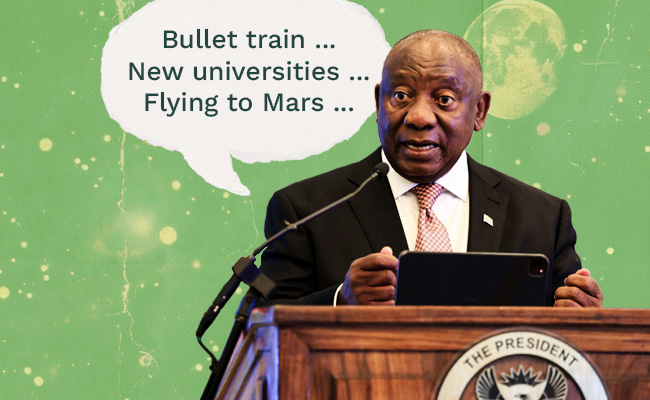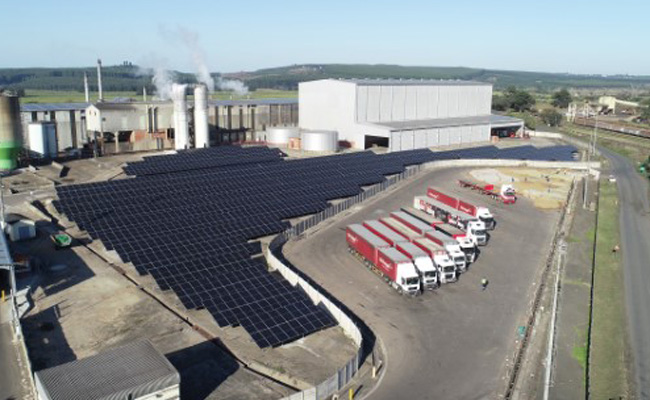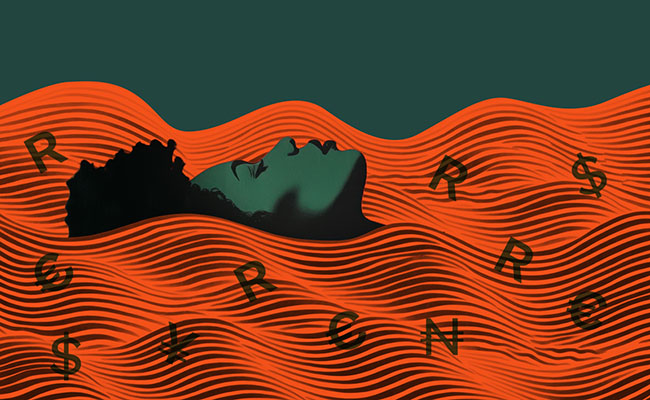From goings-on in politics to info drops in the economic world, we’ve got you covered on what to expect this week.
Politics
US tariffs
South Africa enters another week leaning hard into trade diplomacy and industrial adjustment. Trade, industry and competition minister Parks Tau said last week that the cabinet has approved a revised trade framework offer that he submitted to Washington. The framework aims to soften the 30% US tariffs that took effect on August 7 and, by the department’s estimate, threaten about 30,000 jobs in autos and agriculture. Trump and Ramaphosa have tasked negotiators to keep engaging, while the trade and agriculture departments will brief in Pretoria on the cabinet’s decisions, sector mitigation and an export support desk for affected firms.
South Africa now faces significantly higher effective tariffs than its rivals such as Brazil, China and Switzerland. In response, South Africa is diversifying markets: it expects to conclude a multi-fruit export protocol with China next month (apricots, peaches, nectarines, plums, prunes), then push mangoes and cherries, while talks with Japan cover grains, including corn.
On the ground, industry is hedging its bets: Mahindra, India’s largest automaker, has said it will lift Durban output to ~1,500 vehicles a month (from 900), consider assembling additional models and future EVs, and upgrade to deeper local assembly, all moves that align with government’s push to manufacture more Chinese/Indian-origin models in South Africa as global supply chains and US demand remain uncertain.
GNU outreach
The ANC has signalled it wants to broaden the government of national unity (GNU) and has sounded out other parties, including the EFF and MK; so far, there is no formal announcement of new entrants, and the MK party has publicly rejected joining any GNU that includes the DA and President Cyril Ramaphosa.
Last week, the DA set out its own stance: on August 11 in Joburg, party leader John Steenhuisen outlined what the party called a six-point plan of “urgent, practical and implementable reforms and alternatives”.
The backdrop now is the first national convention of the national dialogue – held at the weekend in Unisa’s ZK Matthews Hall – which launched a year-long process on jobs, crime, governance and social cohesion. The week ahead is set to bring post-convention communiqués and clues as to whether parties will use the dialogue’s themes to frame coalition conditions or co-operation. For now, the coalition’s arithmetic remains uncertain.
By-elections
Three by-elections are scheduled for Wednesday. In the Eastern Cape, in Ward 6 of King Sabata Dalindyebo municipality the ANC is defending a ward it won with just 39% in 2021 (UDM 19%, independent 10%). The party did slightly worse in the 2024 provincial ballot, with the UDM, EFF and DA mopping up more than 50% of the vote between them. The ANC will face the UDM and EFF on Wednesday, plus an independent candidate and a candidate from the African Transformation Movement.
There are two wards up for grabs in the Western Cape. Ward 7 in Matzikama was won by the PA in 2021 with just 27% of the vote (the ANC and DA won 22% each). The DA won the ward in a July 2022 by-election with 62% of the vote and won 59% of the provincial vote in 2024. The DA will face off against the PA, the ANC, the UD and #Hope4SA on Wednesday.
In Knysna, the ANC will be defending Ward 3. The party won the seat with 58% of the vote in the 2021 local election (independent 19%, DA 6%) and increased its share of the vote to 66% in the 2024 provincial election. The ANC candidate will contest the by-election alongside candidates from the PA, Active United Front, and the Land party.
Economics
Consumer price index (July)
This week, attention turns to Wednesday’s CPI release. Headline inflation is likely to edge up from 3% to about 3.5% year on year, driven by firmer food and transport costs. Food prices are rising off a low base across most categories, with red meat facing additional pressure from foot-and-mouth disease. Petrol rose a little over 2% month on month in July as Brent gained nearly 8% and the rand softened roughly 0.5% against the dollar, narrowing fuel deflation to about 5.9% from 11.2%.
July’s heavy survey month also typically lifts services, housing and utilities (notably electricity), building/household insurance and bus fares. With municipal electricity adjustments following Eskom’s approved 2025/26 tariff path, housing and utilities inflation is set to nudge up to roughly 4.8% (from 4.4%). South Africa’s core inflation is likely to remain contained but edge slightly higher, near 3% from 2.9%.
Transport, trade prices and funding mix
From Stats SA, two supporting releases bookend CPI this week. On Tuesday, the Land Transport Survey is due, offering a read-through on road freight and passenger volumes. The readout will be useful for judging logistics bottlenecks, domestic demand and freight pricing after a softer patch earlier in the year.
On Thursday, Stats SA publishes export and import unit-value indices, giving an early signal on traded-goods price pressures ahead of next week’s producer price index. With food and fuel still in focus, if traded-goods prices pick up, that would add a little upward pressure to CPI into spring.
Meanwhile, the National Treasury’s foreign-currency funding plan is in train: proposals closed on August 6 and decisions are due by August 29. That timeline could lead to more market discussion and small moves in government bond yields this week.

This article is published courtesy of The South Africa Brief, a political newsletter published on Substack which is a collaboration between Paul Berkowitz and Jonathan Moakes. It provides analysis and insight into the new, uncertain era of South African politics heralded by the 2024 general election. Including a specific focus on municipal politics, it will provide full analysis in the run-up to next year’s municipal polls.
Sign up to Currency’s weekly newsletters to receive your own bulletin of weekday news and weekend treats. Register here.











